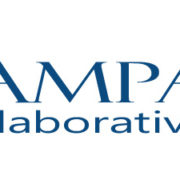Tampa Tribune Publishes Cordover Letter on Collaborative Divorce
The March 31, 2016 edition of the Tampa Tribune published a Letter to the Editor penned by Family Diplomacy Managing Attorney Adam B. Cordover on the newly signed Florida Collaborative Law Process Act (“CLPA”). You can find the Letter to the Editor below:
LETTER OF THE DAY: TAKING THE FIGHTING OUT OF DIVORCE
Recent bills passed by the Florida Legislature reforming alimony and changing child time-sharing laws have received a lot of attention, but something that has flown under the radar is the passage of the Collaborative Law Process Act (CLPA). Gov. Rick Scott signed the bill on March 24 after a seven-year effort by licensed mental health counselors, marriage and family therapists, psychologists and other family advocates.

The CLPA applies to divorce and other family law matters, and it creates a uniform system for the practice of collaborative law (also sometimes referred to as collaborative divorce, collaborative practice or the collaborative process).
The goal of collaborative law is to take the fighting out of divorce. Each spouse retains an attorney for the sole purpose of reaching an out-of-court agreement. Collaborative attorneys are barred from wasting any of the clients’ energy, time or money on opposition research, discovery motions or preparing for trial.
Collaborative law often involves a neutral facilitator with a mental health licensure. This is in recognition of the fact that divorce is not just a legal process, but it is predominately an emotional process. The facilitator helps parents learn to communicate and focus on what is most important to them, such as the health and welfare of their children.
The facilitator also keeps the clients (and their attorneys) future-focused and not bogged down in the arguments of the past.
A neutral financial professional also is oftentimes utilized so that the parties can trust, but verify, and ensure that they are making informed decisions on financial matters. The financial professional will also aid in developing personally tailored options for support and the division of assets and debts, and helps spouses with budgeting matters so they can be on better footing once the divorce is finalized.
The CLPA strengthens collaborative law’s privacy protections by creating a statutory privilege that, except under very limited circumstances, prevents spouses from ever using collaborative communications against the other spouse in court.
Florida becomes the 14th state to enact a version of the Uniform Collaborative Law Act. The Florida Supreme Court is now expected to adopt rules of procedure and professional conduct governing collaborative law.
The CLPA is big news for families and a boost for the private, respectful and gentler resolution of divorce and other disputes.
Adam B. Cordover, Esq.
Tampa
– See more at: http://www.tbo.com/list/news-opinion-letterday/letter-of-the-day-taking-the-fighting-out-of-divorce-20160331/#sthash.jZbp2gS2.dpuf
If you have questions about the Collaborative Law Process Act or how Collaborative Law can help your family, schedule a consultation with Family Diplomacy: A Collaborative Law Firm at (813) 443-0615 or CLICK HERE to fill out our contact form.
—
Adam B. Cordover is the immediate past president of Next Generation Divorce, Florida’s largest collaborative practice group with professionals serving Hillsborough, Pinellas, Pasco, Sarasota, and Manatee Counties. Adam is also on the Board of Directors of the Florida Academy of Collaborative Professionals and a member of the Research Committee of the International Academy of Collaborative Professionals.





Leave a Reply
Want to join the discussion?Feel free to contribute!